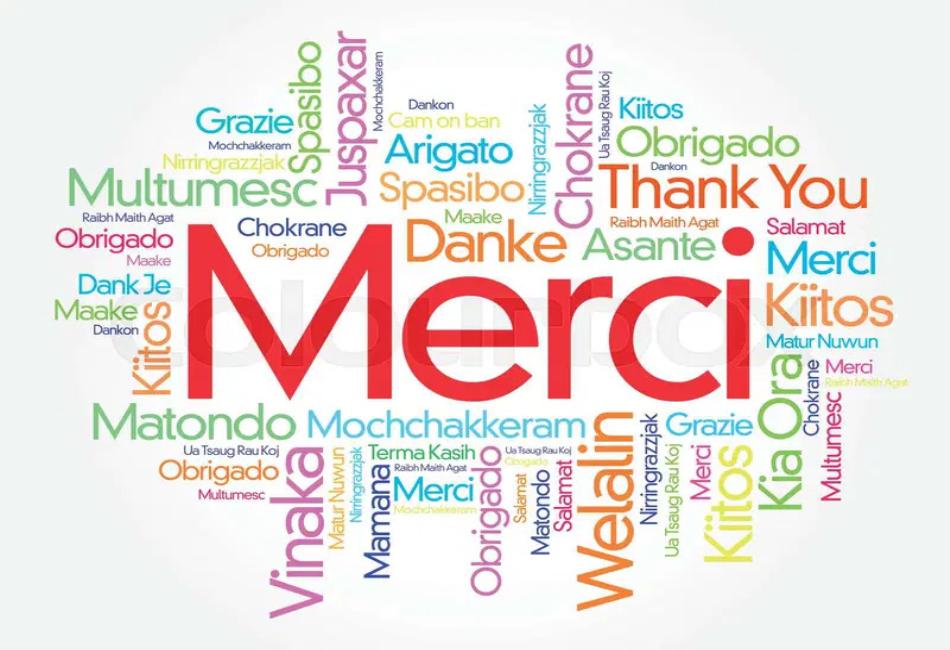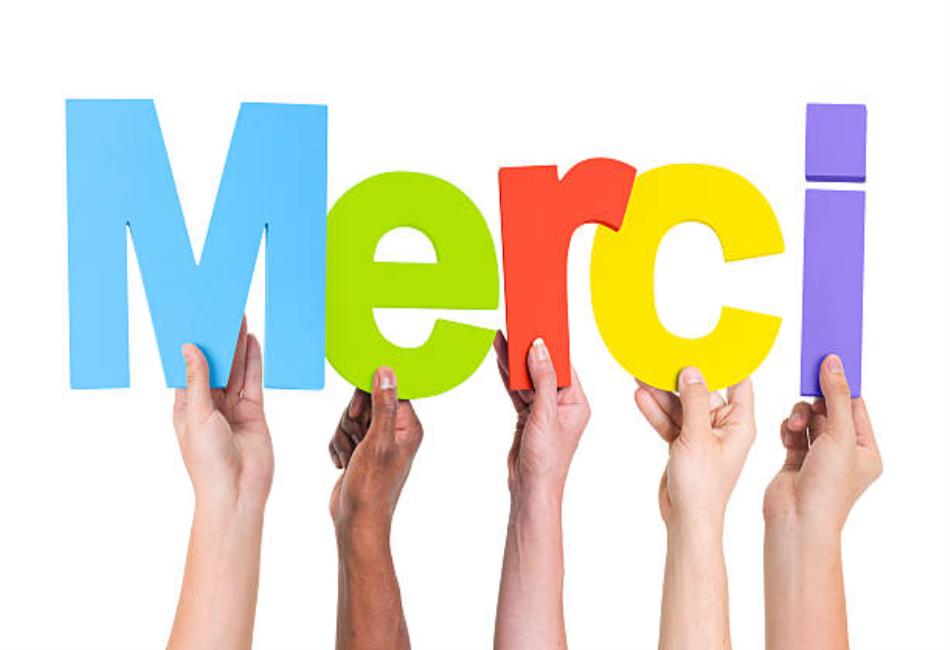Learn the most fitting and creative ways to respond to “merci” and make your interactions more delightful and personal.
So, someone just said “merci” and now you’re standing there, spotlight on you, the pressure mounting! Fear not, because we’ve got the ultimate list of French comebacks that will not only save you but might even make you look suave. Step aside “you’re welcome,” there’s a whole world of witty responses like “de rien” and “pas de souci” awaiting your mastery. Stick around; by the end, you’ll be so well-versed in French politeness, you could give Emily in Paris a run for her money.
Key takeaways:
- De Rien: Simple, humble, versatile response for everyday exchanges.
- Pas De Problème: Casual, polite, efficient for various situations.
- Je T’en Prie: Formal, warm, adds elegance to responses.
- Avec Plaisir: Enthusiastic, versatile, adds a personal touch.
- C’est Normal: Modest, cool, effortless response with charm.
De Rien
– Simplicity: It keeps things straightforward, perfect for everyday exchanges.
– Universality: It can be used in almost any context, whether you’re chatting with a buddy or replying to your boss.
– Humility: By saying it’s nothing, you’re downplaying your actions, which can make you seem modest and approachable.
Next time someone says “merci,” whip out this versatile gem. It’s like wearing your favorite pair of comfy socks—reliable and always appropriate.
Pas De Problème
Picture this: someone thanks you, and you effortlessly toss back “Pas de problème.” Slick and smooth.
It’s the French go-to for “No problem.” Casual yet polite. It’s perfect for those situations where you want to show gratitude without making a big deal out of it.
Think of it as the linguistic equivalent of a friendly shrug. It’s straightforward, effective, and keeps the conversation light.
Versatility? Check. Professional at work, chill with friends—it’s got you covered. Even strangers appreciate its easygoing vibe.
Efficiency? Oh yes. Saves you from stumbling over awkward thank-yous while still sounding considerate.
Voilà! Next time someone drops a merci, ace it with this gem.

Je T’en Prie
Ah, this one sounds fancy, doesn’t it? “Je t’en prie” is your go-to for when you want to sound a bit more formal, French, and oh-so-polished. Ever feel like adding a touch of elegance? This phrase has your back.
- Formality: While casual, it’s seen as a polite way to brush off thanks with a smile.
- Versatility: Use it in almost any situation, from helping a friend to assisting a stranger.
- Tone: It conveys a certain warmth, like you’re sincerely pleased to have helped.
Throw it into your next conversation and watch eyes twinkle in appreciation!
Avec Plaisir
When you want to sound extra fancy or just genuinely enthusiastic, this phrase is your go-to. It literally means “with pleasure”. It’s a great way of showing that you were delighted to help. Think of it as adding a personal touch to your response.
Here are a few reasons why it’s a winner:
It conveys genuine enthusiasm. You’re not just being polite; you’re thrilled to help.
It sounds sophisticated. Perfect for both formal and informal situations.
It’s versatile. Whether you helped someone with a minor favor or a big one, it always fits.
Plus, imagine the look on their face when you drop this delightful little phrase. It’s like handing them a verbal high-five!
C’est Normal
Ah, the charm of French nonchalance. This response carries a sense of modesty and normalcy.
- Think of it as saying, That’s what anyone would do.
- It suggests that helping is just part of the routine.
- It’s a humble way of downplaying the act of kindness.
- The underlying message is, No big deal, really.
- Perfect for when you want to sound effortlessly cool.
Picture a shrug and a gentle smile as you say it. Très chic, non?
Tout Le Plaisir Est Pour Moi
This response is dripping with charm. It translates to “The pleasure is all mine,” and it’s perfect if you’re aiming to add a touch of elegance to your reply. Here are some key points:
It’s Flattering: It shifts the focus from their gratitude to your enjoyment of being helpful. Instant charm points.
Universal Setting: Whether you’re at a fancy dinner or just helped someone pick up dropped groceries, it works.
Positive Vibes: It’s a delightful way to spread some positivity. No doom and gloom here!
Memory Maker: Unforgettable and a tad theatrical, they might remember your kindness just because of this fancy reply.
Overall, it’s a feel-good all-rounder!
Pas De Souci
Sometimes, the French go with this breezy response. It’s casual, yet comforting, like a warm croissant on a Sunday morning. It literally means “no worries” or “no problem.”
Great for informal settings, it puts everyone at ease. Imagine someone thanking you for holding the door. Throw this one out and watch them smile.
Got a friend who forgets their wallet at lunch? They thank you for covering the bill. You say this, they relax.
It’s versatile. From helping a neighbor carry groceries to lending a hand at work, it fits almost any everyday situation. Just make sure you’re not at a fancy dinner party with it—save those for more formal replies.
À Votre Service
Picture it: someone thanks you for your brilliant assistance. What’s better than channeling your inner James Bond and suavely saying, “At your service”?
This phrase signifies readiness and professionalism. Key points:
It radiates helpfulness: You’re essentially saying you’re on standby for their needs. Hello, superhero vibes.
It’s formal, yet warm: Ideal for professional settings. Co-workers and clients love it.
It suggests reliability: They know they can count on you, not just today, but in the future too.
So, rock that phrase with confidence and perhaps a charming smile. You’ve got this.
Pas De Quoi
This little expression is the linguistic equivalent of a shrug combined with a cheerful smile. It literally translates to “it’s nothing,” which conveys a casual dismissal of the thanks, like you’re saying, “Pfft, don’t mention it!”
- Relaxed and informal, suitable for friends, family, and even casual workplace banter.
- Implies that the assistance was so minor it’s hardly worth acknowledging. Perfect for small favors.
- Keep it handy for everyday interactions; it shows you’re chill and approachable.
- It doesn’t elevate the helper above the thanker, maintaining an equal-footing vibe.
Master this phrase and you’ll sound effortlessly French, even if you’re just passing the salt.
Aucun Problème
Next up in the gratitude game: a delightful gem! It literally means “no problem,” and it’s like waving away someone’s thanks with a big smile and a reassuring pat on the back.
One, it’s casual yet polite. Perfect for everyday situations.
Two, it implies that the favor didn’t require any significant effort. You make it clear that helping was no hardship at all.
Three, it signals that you’re approachable. You’re the kind of person who’s happy to lend a hand without expecting a parade in return.
Simple, friendly, and disarmingly gracious. It’s the kind of phrase that shrinks the word “worry” to nonexistence.





